
Introduction – Essential Korean Phrases in Daily Conversations
Embarking on the journey of learning Korean opens up a world where every phrase is a key to unlocking deeper cultural understanding and more meaningful interactions. While mastering Korean for business or academic purposes has its place, the true essence of language lies in the everyday conversations that form the fabric of daily life. In this blog post, we delve into the heart of Korean language – the simple yet essential phrases that make up day-to-day communication.
Whether you’re a curious tourist, an aspiring linguist, or someone looking to connect more authentically with Korean friends and culture, these phrases are your gateway to a richer, more engaging language experience.
From the bustling streets of Seoul to the tranquil countryside, knowing these phrases will transform your understanding and appreciation of the Korean way of life. Join us as we explore the vibrant world of daily Korean conversations, where every phrase brings you closer to the heart of Korea. Please read this ‘Essential Korean Phrases in Daily Conversations’ post.
+ Take our ’30-day to Korean Fluency’ Course to improve your conversational skills
Mastering Everyday Korean: Key Phrases for Daily Use

Enhanced Greetings and Everyday Expressions
For learners who have moved beyond the basics, understanding nuanced greetings and expressions is crucial. Instead of just “안녕하세요” (Annyeonghaseyo – Hello), you might use “오랜만이에요” (Oraenmanieyo – Long time no see) when you meet someone you haven’t seen in a while. Another useful phrase is “요즘 어떻게 지내세요?” (Yojum eotteoke jinaeseyo? – How have you been lately?), which shows a deeper interest in the person’s life.
Expressing Opinions and Preferences
As your Korean improves, you’ll want to express your thoughts and preferences. For instance, “저는 개인적으로 이것을 선호해요” (Jeoneun gaeinjeogeuro igeoseul seonhohaeyo – Personally, I prefer this) is a great way to state your preference. When giving an opinion, a phrase like “제 생각에는 그것이 더 나을 것 같아요” (Je saenggage-neun geugeosi deo naeul geot gatayo – In my opinion, that might be better) can be useful.
Describing Routine and Activities
Discussing daily routines and activities is a common part of conversation. Phrases such as “저는 주로 아침에 운동해요” (Jeoneun juro achime undonghaeyo – I usually exercise in the morning) and “주말에는 친구들과 만나서 영화를 보곤 해요” (Jumare-neun chingudeulgwa mannaseo yeonghwareul bogon haeyo – On weekends, I meet friends and often watch movies) are examples of how you can describe your regular activities.
Making Plans and Suggestions
As you interact more in Korean, making plans and suggestions becomes important. To suggest an outing, you might say, “이번 주말에 카페에 갈래요?” (Ibeon jumale kape-e gallaeyo? – Shall we go to a cafe this weekend?). If you’re making plans, a phrase like “내일 오후에 시간 어때요?” (Naeil ohue sigan eottaeyo? – How about tomorrow afternoon?) is helpful.
Handling Everyday Situations
Knowing how to handle everyday situations in Korean can be very empowering. If you need help, saying “조금 도와주실 수 있나요?” (Jogeum dowajusil su innayo? – Could you help me a little?) is polite and effective. In a shopping scenario, “이거 맞춤 가능한가요?” (Igeo majchum ganeunghangayo? – Can this be tailored?) can be a useful question.
By integrating these intermediate-level phrases into your daily use, you not only enhance your linguistic abilities but also deepen your engagement with Korean culture and society. These expressions are not just words; they are keys to unlocking a more authentic and immersive Korean experience. Let’s keep reading this ‘Essential Korean Phrases in Daily Conversations’ blog post.
Understanding Context – Essential Korean Phrases in Daily Conversations

Navigating daily life in Korea involves a variety of contexts where specific phrases can be especially useful. Here, we’ll explore phrases tailored for dining, shopping, and traveling scenarios.
Phrases for Dining Out
- Ordering Food:
- “이 요리는 어떤 맛이에요?” (I yori-neun eotteon mas-ieyo? – What does this dish taste like?)
- “이것 주문할게요” (Igeot jumunhalgeyo – I’ll order this)
- “매운 음식은 피하고 싶어요” (Maeun eumsigeun pihago sipeoyo – I’d like to avoid spicy food).
- Asking for Recommendations:
- “이 식당의 추천 메뉴가 뭐예요?” (I sikdang-ui chucheon menyuga mwoyeyo? – What’s the recommended menu of this restaurant?)
- “가장 인기 있는 요리는 무엇인가요?” (Gajang ingi inneun yorineun mueosingayo? – What is the most popular dish?).
Phrases for Shopping – Essential Korean Phrases in Daily Conversations

- Inquiring About Products:
- “이 제품은 어디에서 만들어졌나요?” (I jepumeun eodieseo mandeureojyeonnayo? – Where was this product made?)
- “보증 기간은 얼마나 되나요?” (bojeung gigan-eun eolmana doenayo? – What is the warranty period for this?).
- Negotiating Prices:
- “조금 더 저렴하게 해 주실 수 있나요?” (Jogeum deo jeoryeomhage hae jusil su innayo? – Can you make it a little cheaper?)
- “현금으로 지불하면 할인되나요?” (Hyeongeumeuro jibulhamyeon halindoeynayo? – Is there a discount for cash payment?).
Phrases for Traveling
- Asking for Directions:
- “가장 가까운 지하철역은 어디인가요?” (Gajang gakkaun jihacheollyeogeun eodiingayo? – Where is the nearest subway station?)
- “이곳에서 박물관까지 어떻게 가나요?” (Igose-seo bangmulgwankkaji eotteoke ganayo? – How do I get to the museum from here?).
- Handling Emergencies:
- “경찰서를 찾고 있어요” (Gyeongchalseoreul chatgo isseoyo – I’m looking for a police station)
- “제 지갑이 도난당했어요” (Je jigabi donandanghaesseoyo – My wallet has been stolen).
Enhancing Your Korean Conversational Skills

To truly thrive in Korean conversations, it’s important to weave complexity and depth into your language use. This section covers advanced expressions and phrases that help you sound more like a native speaker.
Advanced Expressions for Fluent Conversations
- Expressing Empathy: “그 상황에서는 힘들었겠어요” (Geu sanghwang-eseoneun himdeureosseoyo – That must have been tough in that situation) · “당신의 노력을 정말 존경해요” (Dangsin-ui noryeogeul jeongmal jongyeonghaeyo – I really respect your effort).
- Sharing Personal Experiences: “저는 이전에 비슷한 경험을 해봤어요” (Jeoneun ijeone biseuthan gyeongheomeul haebwasseoyo – I have had a similar experience before) · “그 때 제가 배운 것은…” (Geu ttae jega baewun geoseun… – What I learned then was…).
Discussing Hobbies and Interests
- Sharing Your Hobbies: “저는 여가 시간에 한국 영화를 보는 것을 좋아해요” (Jeoneun yeoga sigane han-guk yeonghwareul boneun geoseul joahaeyo – I enjoy watching Korean movies in my free time) · “최근에 취미로 사진 찍기를 시작했어요” (Choegume chwimir로 sajin jjikgi-reul sijakhaesseoyo – Recently, I started photography as a hobby).
- Asking About Others’ Interests: “어떤 취미가 있으신가요?” (Eotteon chwimiga isseusingayo? – What hobbies do you have?) · “주말에 주로 무엇을 하시나요?” (Jumare juro mueoseul hasinayo? – What do you usually do on weekends?).
Expressing Feelings and Emotions
- Talking About Feelings: “이 일로 많이 기쁘고 화이팅 넘치는 기분이에요” (I illo mani gippeugo hwaiting neomchineun gibun-ieyo – I feel very happy and energetic about this) · “좀 슬프지만 괜찮아요” (Jom seulpeujiman gwaenchanhayo – I’m a bit sad, but it’s okay).
- Responding to Others’ Emotions: “그 말을 들으니 저도 기분이 좋아지네요” (Geu mareul deureuni jeodo gibuni joajineyo – Hearing that makes me feel good too) · “많이 힘들었겠어요, 여기서 휴식을 취하세요” (Mani himdeureosseoyo, yeogiseo hyusigeul chwiseyo – That must have been tough, take a rest here).
Conclusion – Essential Korean Phrases in Daily Conversations
How was ‘Essential Korean Phrases in Daily Conversations’ post? As you weave these intermediate and advanced Korean phrases into your everyday conversations, you’re not just improving your language skills – you’re embracing a whole new way of connecting with people and their culture.
Each new phrase you master opens up opportunities for more meaningful and engaging interactions, bringing you closer to the heart of Korean life. Whether you’re sharing a laugh with friends over coffee, discussing your latest adventures, or simply expressing your thoughts and feelings more vividly, your growing proficiency in Korean is your bridge to a richer, more authentic experience.
At JAEM Korean, we’re excited to be a part of your language learning adventure, supporting you every step of the way. So keep exploring, practicing, and enjoying the journey – the world of Korean language is full of surprises and delights, just waiting for you to discover them.
*Leave a comments and share to your friend if you like this ‘Essential Korean Phrases in Daily Conversations’ post.

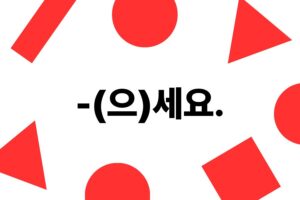

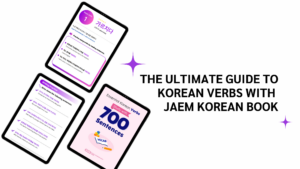




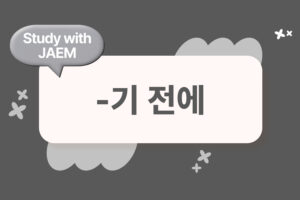


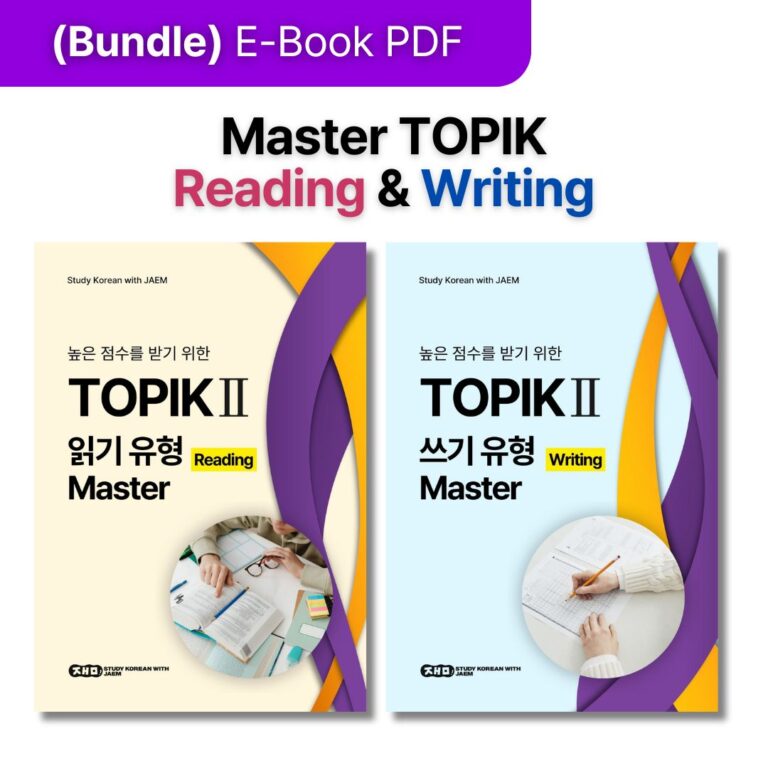
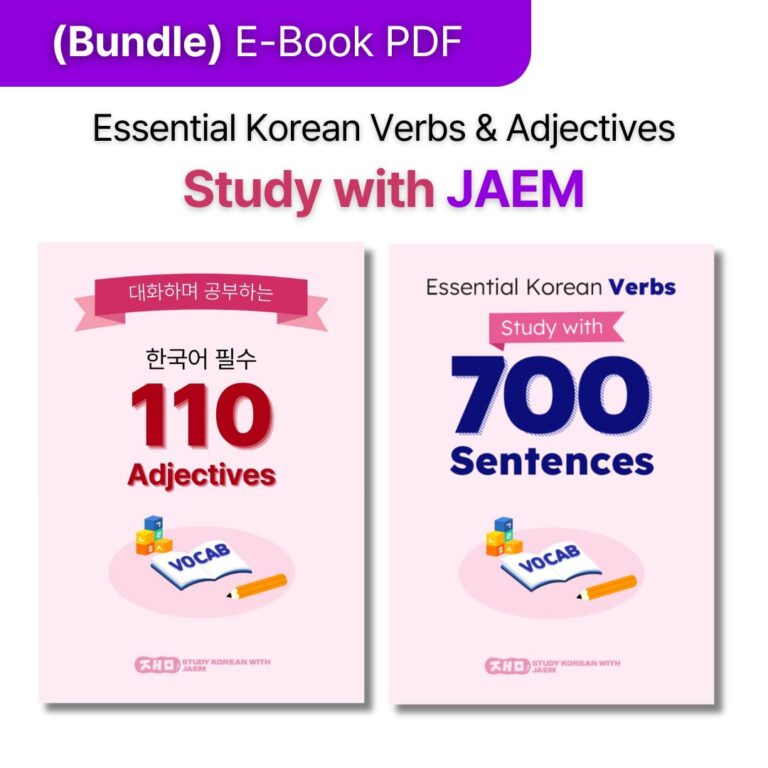

Responses